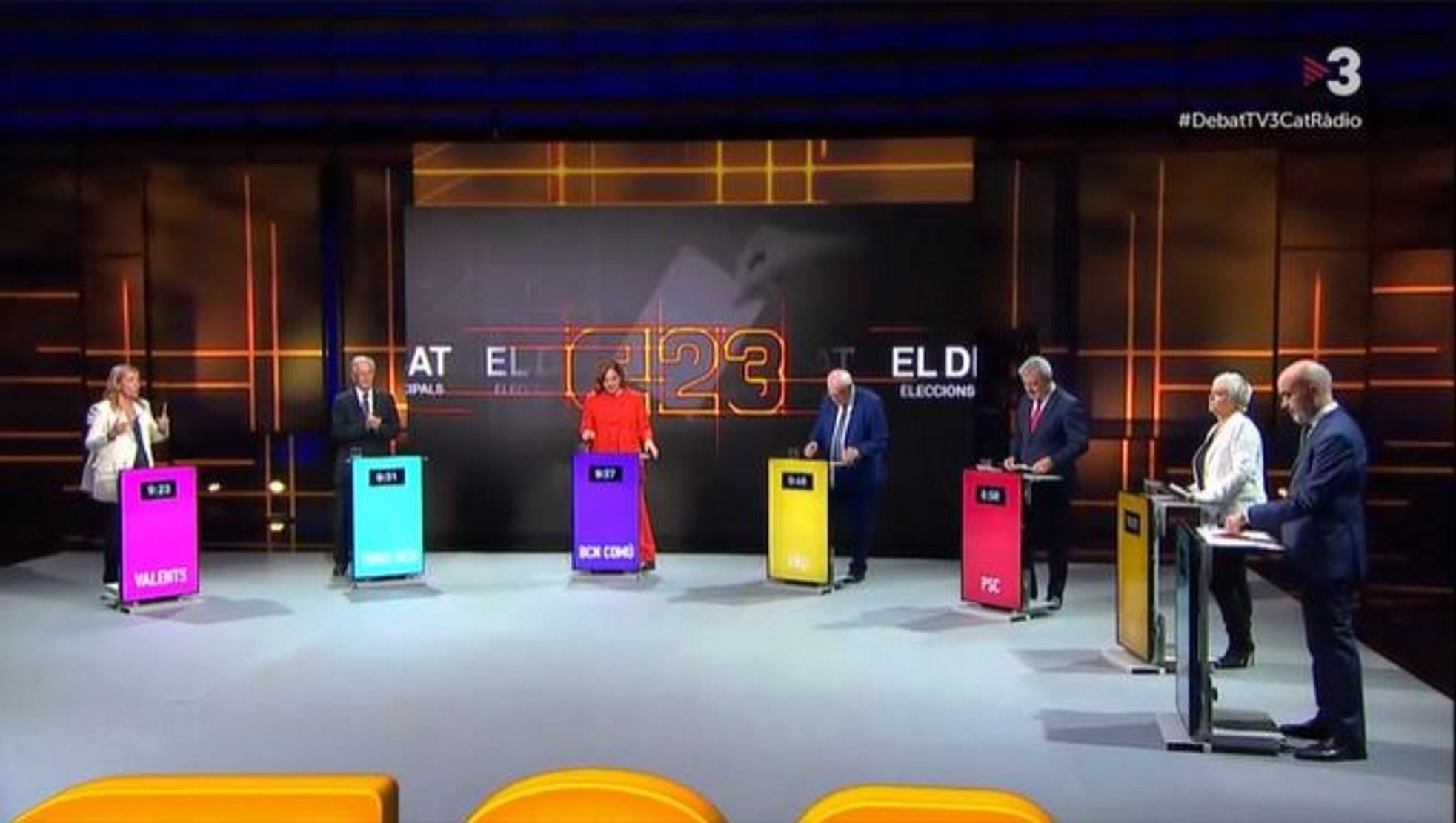The diglossia that exists in Catalan society ended up being one of the background protagonists in Tuesday's final Barcelona electoral debate on TV3, held in the lead-up to the May 28th municipal elections. What is diglossia? It is what happens in a society where two languages are used and there is one dominant language (usually labelled H, for high) and another which is pushed into a secondary role (L, for low). The concept was developed by the US linguist Charles Albert Ferguson. Diglossia shows the inherent instability of bilingualism when it is actually put into practice. Thus, you can speak Spanish in a programme in Catalan, on Catalan television, and the status quo will not complain, but don't think of speaking in Catalan in a programme in Spanish, because it will have an instant impact. In the Spanish Congress, speakers who try it will even have their microphone turned off, and be told to leave the rostrum.
🔴 All our coverage in English of the 2023 Municipal Elections
The result of the phenomenon in electoral debates is that less and less Catalan is spoken, with the balance gradually coming to normalize the presence of Spanish, and a shameless diglossic militancy from some of the parties most oriented to Spanish nationalism. In an asymetrical language situation like that between Spanish - the 'H' language - and Catalan, 'L', the language in the weaker situation only has a chance of survival if it has a presence in the circles of power and the mass media, and the tendency to obsessively limit its area of use must be stopped, as is currently the case in Catalan cinema and also on private and public Catalan television. With the militant introduction of Spanish into the electoral debates, Catalan is prevented from showing itself as a language of normal usage - since any speaker can abandon it for Spanish at any moment. On the other hand, the exclusivity of the dominant language is absolutely guaranteed - that is, for any debate in Spanish. This is a drift that not even the Catalan Statute of Autonomy has been able to stop. In that 2006 document, it was stated that Catalan was Catalonia's "own language" as well as an official language, and Spanish was simply an official language, thus giving Catalan a slightly higher status. But than has not been applied.
The current "Castilianization" of Catalan politics only had one timid precedent, when Aleix Vidal Quadras became militant in the use of Spanish when he led the PP in Catalonia in the 1990s. But he was later surpassed in the 2010s by Albert Rivera and Inés Arrimadas in reinforcement of the uncomplexed Spanish nationalism of Ciudadanos, and the PP, the Catalan Socialists and at times Ada Colau have jumped on the bandwagon. The pressure from the Spanish unionist parties is so strong that some experts believe it goes beyond diglossia: that what is happening is in fact linguistic substitution, due to the weight of the political action being applied in this minoritization of Catalan.
In Tuesday night's debate, the speaker who used the most Spanish when taking part was the candidate of Valents (the heirs of Manuel Valls's 2019 campaign), Eva Parera (488 seconds), followed by the candidate of Ciudadanos, Anna Grau (356 seconds), and the PP candidate, Daniel Sirera (289 seconds). And the candidate for mayoral re-election, Ada Colau, used Spanish in a comment to Sirera when he was speaking in Spanish (4 seconds). The Junts candidate, Xavier Trias; the Socialist, Jaume Collboni, and the Republican, Ernest Maragall, spoke consistently in Catalan, the vehicular language at the beginning of the programme.
The Barcelona candidates who spoke the most Spanish in the TV3 debate (in seconds)
Three-way tie raises the tension in TV3 debate
With a three-way tie in the polls - yet with as many as 30% of voters still undecided - the electoral debate between the Barcelona mayoral candidates on TV3 this Tuesday was the most tense of those that have been held, as well as the last debate before Sunday's elections. The clashes between the Junts candidate, Xavier Trias, and the mayor and candidate for the Comuns, Ada Colau, were a recurring feature throughout the two hours of debate, while the PSC leader, Jaume Collboni, who has been placed at the head of the race according to some polls, received the most criticism at some points of the debate - from all those present, including the mayor - who reproached him for forgetting, when it suited him, that he had been deputy mayor for most of the last few years. For his part, ERC's Ernest Maragall, who appears to have fallen from the leading positions, was more aggressive in his attacks on the rest of the rivals in a bid to mark his own space.

